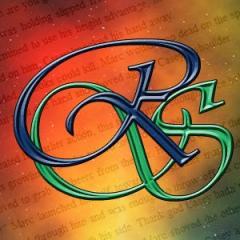Writing Tip Writing Tip: Grammar Rodeo #2
Who's ready for another Grammar Rodeo? A big thanks to Cia for providing these for the blog. They are a great learning tool and include some great tips and tricks to help authors remember what is best to use. Hopefully you'll find Grammar Rodeo #2 as informative as I did!
Grammar Rodeo #2
Those Pesky Word Choices
Past vs. Passed
This one is complicated when you consider the many, many variations of past. Past can be used as an adjective, a noun, a preposition, and an adverb. Passed is only used as verb.
Let’s start with the easy one: Passed. Passed is the past tense form of the word ‘pass’. It’s the word that indicates an action of passing something that already took place. That is the only accepted use of this word.
Verb: A word that indicates an action of physically moving an object.
“He passed me the phone.”
Past is a bit more complicated, as it has many uses, however, it is NEVER used as a verb. So if your meaning indicates an action itself, use passed. If you are using the word any other way, use past. I’ll still share the different meanings of past, as the adverb and preposition meanings are what cause the most confusion for people.
Adjective: Past-just gone by; elapsed or a time before the present
“The lessons of the past should never be forgotten in the future.” In this case, past is an adjective of the subject ‘the lessons’.
Noun: An earlier time; a time before the present
“The past is over.” In this case, the subject (noun) is simply ‘the past’.
Adverb: To and beyond a certain point in time.
“Years went past before I learned the truth.” In this case ‘went’ is the verb, so past is being used as an adverb to describe it. How many confuse this one: If you do not have another verb like went in the sentence as the action word, you’d need to change from past to passed. “Years passed before I learned the truth.” Note how passed is now being used to indicate the action itself.
Preposition: At the farther side; beyond; after
“We turned at the house just past the one on the corner.” Note that it’s the house ‘past’ the one on the corner. Here past indicates the house they turned at is beyond the house on the corner. The word past is describing the location of the houses.
Possessive vs. Plural
Let’s do a quick one for this second grammar snafu.
Possessive: Add an s or es to a word to indicate more than one.
“Bill’s alarm is going off.” The alarm belongs to Bill, so you use ’s to indicate the possessive use.
Plural: Add s to a word to indicate possession. Example:
“I grew up in the 80s and 90s.” Decades are probably the #1 consistent typo I see of possessive ’s instead of the proper possessive s use.
Variations:
Possessive its: Its is the only use of a possessive word that doesn’t use the apostrophe. It’s is only used to indicate the contraction of it is.
“Its buttons flashed red.” In this case, its refers to an object, not a person, so using it is appropriate but the object still possesses the buttons so you use possessive its.
Words that end in s: Previously, the use of an apostrophe after a word ending in s indicated possession.
“Carlos’ alarm is going off.” In the past, that was the only accepted format. Then, because when you say a word that ends in an s as a possessive, you add the extra s sound, the s’s style gained in popular use and was an accepted variation, even preferred with some editing standards. In 2015, CMoS even switched to s’s being the proper usage and s’ not being an accepted variation.
But really, this one will depend upon your preference and your publisher (if you publish).
-
 6
6






15 Comments
Recommended Comments
Create an account or sign in to comment
You need to be a member in order to leave a comment
Create an account
Sign up for a new account in our community. It's easy!
Register a new accountSign in
Already have an account? Sign in here.
Sign In Now